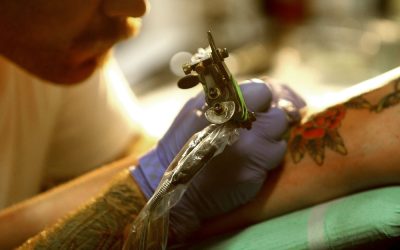Facilitators should apply trauma-informed practices and be prepared to manage crises. Ensuring participants’ emotional safety and providing resources for immediate support are essential components of group activities. She is a sought-after speaker, presenting at national and international conferences on substance use disorders, co-occurring mental health conditions, and high-risk sexual behaviors.
Therapeutic Games for Thought Redirection and Behavioral Change
A 1-page mental health worksheet for affirmations, positive self-talk, and problem-solving strategies for daily challenges. A mental health worksheet for understanding jealousy, its impact, whether it’s pathological, and how to manage jealous feelings. Group goal-setting helps people in recovery set and pursue meaningful objectives together. By breaking down larger goals into manageable steps according to participants’ capabilities, the group gains a sense of accomplishment and enhanced self-esteem. Group reflection promotes self-awareness and emotional regulation, as participants learn from one another’s experiences and lean on each other for support. Engaging in art, music, or writing within a supportive group setting encourages participants to explore their thoughts and emotions.
Space-Themed Party Games for Galaxy Parties: A Complete Guide
- Facilitators should implement check-ins and feedback mechanisms to evaluate individual growth and group dynamics.
- Sharing what they are grateful for helps participants shift their focus from challenges to positive experiences, fostering a more optimistic outlook.
- These activities reduce stigma, encourage camaraderie, and support healthier habits, making them essential for addiction recovery programs.
- Clients weigh in on the issues of others in order to offer suggestions or provide outside perspectives, broadening the individual’s understanding of the conflict.
This hands-on approach helps individuals build confidence in their ability to handle real-life triggers and stressors, reducing the risk of relapse. These activities allow participants to act out interactions they might encounter during their recovery journey, providing a safe environment to practice and refine their skills. Role-playing helps individuals develop better communication skills and enhances their ability to handle challenging situations. Printable recovery games offer a flexible and engaging approach to the healing process, making them ideal for people of all ages and backgrounds. Connecting with nature can be deeply healing, and this experiential activity for group therapy combines physical activity with mindfulness. Participants take a walk in a natural setting, reflecting on their recovery journey as they move through the environment.
Pete Davidson: His Struggle with Drugs and Mental Health Disorders

These Sober living house activities promote personal healing in group participants and nurture a supportive community. The first 90 days of sobriety mark a critical period in your recovery journey. This transformative time brings significant changes, challenges, and opportunities for growth as you build the… Browse our directory or reach out to the Substance Abuse and Mental Health Services Administration (SAMHSA) for more information about addiction recovery.
However, integrating fun games to play in addiction recovery groups can transform these gatherings, injecting energy and laughter into the process. Games such as ‘Two Truths and a Lie’ for ice-breaking, or recovery-themed quizzes to spark conversations, not only make meetings more enjoyable but also deepen connections among members. These activities encourage participation, allowing members to express themselves in a relaxed, judgment-free environment. Creative games that focus on storytelling or problem-solving can further enhance cognitive skills and emotional resilience, crucial components of recovery. This can include medication-assisted treatment, group therapy, individual therapy, life skills groups, psychoeducation activities for recovery groups groups, and support groups. Some clients may present with reluctance to participate in the different forms of group therapy during their treatment program.

Recovery Jeopardy: Make Learning Fun
This practice can help individuals reconnect with their physical selves, something that’s often neglected during active addiction. It’s also a great way to identify and release tension, promoting physical and emotional relaxation. One of the best things about early sobriety is rediscovering the simple joys of connection, laughter, and community. By addressing cultural issues and providing tailored interventions, community-based groups offer valuable support for individuals in recovery.
More Great Game Ideas You’ll Love
As we wrap up our exploration of group therapy activities for adults in recovery, it’s clear that the power of collective healing cannot be overstated. We are dedicated to transforming the despair of addiction into a purposeful life of confidence, self-respect and happiness. We want to give recovering addicts the tools to return to the outside world completely substance-free and successful. CBT activities are solution-focused exercises and techniques that https://www.rina.co.il/2022/01/06/blood-thinners-and-alcohol-interactions-risks-and-3/ aim to improve mental health and substance abuse treatment outcomes in a fun and engaging way. Groups are lead by a trained group leader who prompts discussion and encourages everyone to participate. Other than gently guiding conversation, the group leader is responsible for picking up on client issues that reoccur in group therapy and in daily life.
